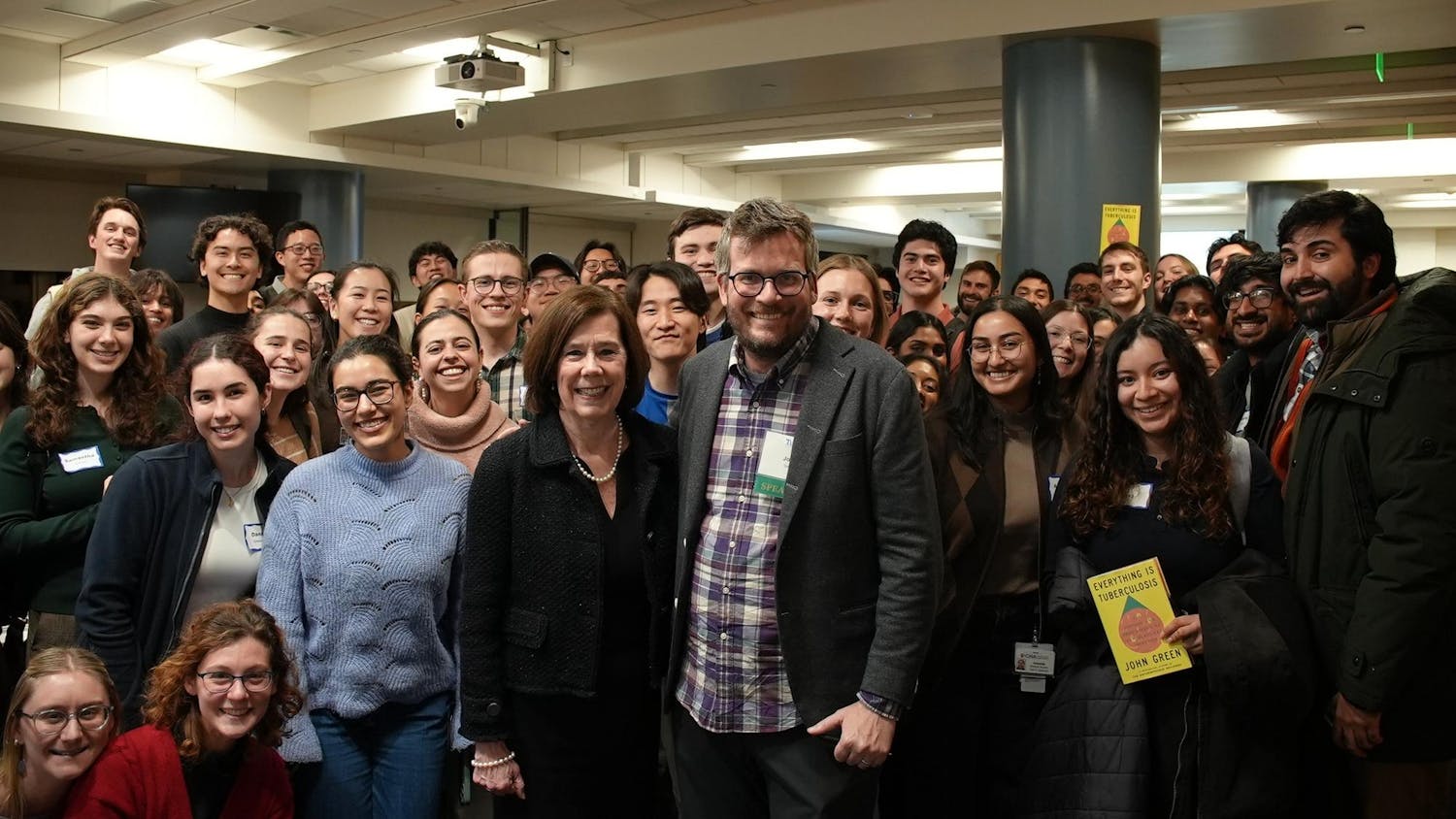The Tufts Community Union (TCU) Senate this October created an ad-hoc committee to gather student input about the future of housing at Tufts. Students’ advice and concerns collected by the committee, led by TCU President senior Brian Tesser and Vice President junior Gauri Seth, will be submitted to the university-led Residential Strategies Working Group (RSWG).
The RSWG -- comprised of faculty, administrators and students -- was created last semesterto compile data on the student residential experience both on- and off-campus, and to subsequently recommend future strategies for university housing plans. Tesser and Seth, along with fellow senators, senior Caroline Higley and sophomore Emily Tannenbaum, serve as the group’s student representatives.
Though the Senate has no power over university housing policy, Tesser and Seth felt it was important to gather more student input about housing issues.
“What I realized was there’s only so much student representation on that committee,” Tesser said. “And as [TCU] representatives, we’re there to represent everyone.”
Thus, Tesser and Seth formed the TCU’s ad-hoc Housing Committee to allow students to discuss housing concerns alongside the RSWG, according to Seth.
On- and off-campus housing has been a growing concern for the university in recent years. Under Somerville’s new Ordinance Regulating University Accountability, which went into effect on Sept. 1, the university is required to report various details about students living off-campus, including their status, graduation date, telephone number and local address.
The Somerville Board of Aldermen’s decision to pass the ordinance in January coincided with increased scrutiny of housing violations -- town officials last year began enforcing long-standing ordinances in Somerville and Medford that cap the number of unrelated adults sharing an apartment at four and three people, respectively. The crackdown caused some students to be evicted from their homes in 2014.
Seth hopes that the new working group will not only address future housing concerns but also those facing students at the present.
“The university definitely recognizes that housing is a really big issue in students’ minds for various different reasons,” Seth said. “We’ve heard a lot of problems with landlords not being great, houses that aren’t safe, very high rents, etc. So I think something I hope will happen [as a result of the RSWG] is not just a long-term fix, but also a short-term ‘how can we help students right now?’”
About a dozen people, all of whom were TCU senators, attended the first ad-hoc committee meeting, though according to Tesser and Seth the meeting was intended to be open to any students who had input.
Tesser said the Senate plans to hold more meetings and publicize them better in the future.
The RSWG, too, has only had one full meeting, which took place in September; however, the RSWG’s two subcommittees -- Residential Strategy Subcommittee 1 (RSS1) and Residential Strategy Subcommittee 2 (RSS2) -- have both met several times, according to Tesser and Seth. Provost David Harris, Dean of Arts and Sciences James Glaser and Dean of Engineering Jianmin Qu chair RSS1, and RSS2 is chaired by Harris and Executive Vice President Patricia Campbell. Dean of Student Affairs Mary Pat McMahon explained that working group members chose to join one or both subgroups during the RSWG’s first meeting.
According to the "Residential Strategy (RS) Working Group Charge," RSS1’s goal is to discuss current housing trends while taking factors such as cost and quality into account. RSS2 aims to determine the target enrollment number for the undergraduate body and to layout the ideal housing strategy for Tufts.
“To this point we have focused on data collection," Harris told the Daily in an email. "In the next week or two we will turn to data analysis."
Harris explained the RSWG plans to have preliminary recommendations ready by the end of 2015, and a final report by the end of the academic year.
According to Seth, each of the four senators involved in RSWG -- Tesser, Seth Higley and Tannenbaum -- receive emails from both subgroups and attempt to make sure at least one senator can attend every meeting.
Seth recognizes, however, that having one senator at a subgroup meeting is still not fully representative of the student body’s experiences.
“[The aim of the ad-hoc committee] was to get everyone’s opinions and make sure we’re going into the RSWG with not just, ‘This is what I think and what I have experienced,’" she said. "Because at the end of the day, we’re only four senators, and that’s not necessarily reflective of everyone’s experience. And we want to repeat it, because an hour isn’t a very long time to hear from a lot of people."
The administration has been largely supportive of the Senate's efforts, according to Seth.
McMahon, who is part of both subgroups within the RSWG, expressed her support for the senators' desire to incorporate a variety of students' opinions into the discussion on housing.
“The idea that they would be pulling a lot of different perspectives in makes sense to me, and it’s appropriate for them as student leaders who are on the committee not only to give their own opinions, but also to represent the broader perspective of student opinions,” she said.
Provost Harris also praised the Senate’s ad-hoc Committee.
“[The ad-hoc committee] is great, and consistent with the RSWG,” he wrote.
While Tesser is proud of student involvement thus far, he acknowledges that there are more perspectives and opinions yet to make their way to the RSWG.
“I do feel like the student voices have been heard,” Tesser said of the RSWG meetings so far. “But our goal is to have morevoices be heard.”
More from The Tufts Daily
Serve & Survey: Emotionally editing humanity
By
Jaylin Guzman
| February 20





